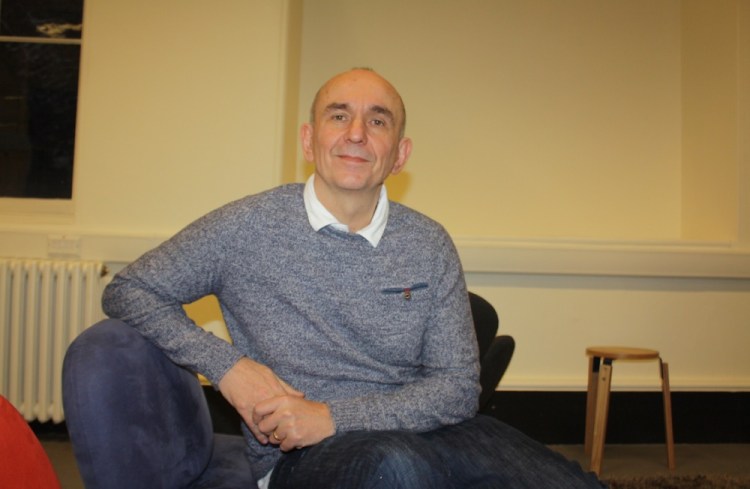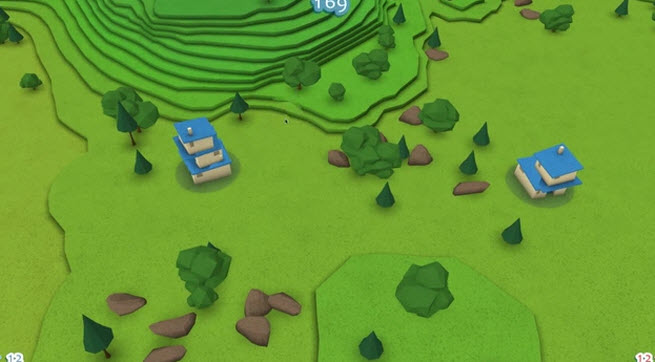GamesBeat: In Asia, an interesting thing might be that you have very different tastes as far as what they like about monetization. They don’t seem to mind some of the harsher methods.
Molyneux: No, it’s really interesting, isn’t it?
GamesBeat: The thing I hear about the Chinese is that you can log back in and someone’s burnt down your village and you have to build it all over again.
Molyneux: It’s fascinating to be able to experiment with different territories. It’s somewhat frustrating as well, though. There’s always this delay on iOS between submitting a release and — the ability to have different versions in different territories, you can’t actually do that, other than via some server stuff.
Anyway, that’s where I stand. I’m obsessively creating this new title, which I’m incredibly excited about. It’s very brave in terms of its simplicity, but it’s doing things with game mechanics that perhaps you’ve never seen before. Godus is chugging away. It’s a fantastically exciting time.
GamesBeat: How many people do you have now?
Molyneux: 22cans is 22. The other arm of 22cans, called 14 Steps, at the moment there’s only six. That will keep going for as long as it can. Again, this is a fascinating world. You have a graph. You can see your costs here and your development here and very accurately start predicting how long things are going to go on.
GamesBeat: How many updates have you done for Godus?
Molyneux: About 35 total across all formats. That’s including Steam, of course.
GamesBeat: Are you approaching platforms the same way with the new game?
Molyneux: With Godus, we did Steam Early Access, Android, and iOS. It was quite a rocky road going through all those hoops. Steam is probably the easiest to release on. We’ll probably do the same. There are differences between the PC and mobile, but it’s a fascinating design challenge, to come up with something that can be played on all those devices and try to release simultaneously. It is a very back-breaking task for a small team like ours to release on all those formats. We’re always releasing something, every week.
GamesBeat: Did you get much feedback from the confessional talk?
Molyneux: Yes, I did. The feedback was — people realize that what I was saying was true. You can see very tangibly in Godus the things we’ve played around with. I think people were worried I was going to walk away from Godus and call it a day. I had to placate a lot of that stuff.
Some of the other free-to-play people I know agreed with some of the points I made. Talking to other developers and smaller publishers, I think there’s a nervousness about free-to-play now that hasn’t been there before. Just a year ago, everyone said, “You should go free-to-play! You’ll make a fortune!” Now it’s, “Well, we’re not sure about free-to-play.” The problem is, if we all stick to the same model – having an abstract currency with consumers buying that and consuming it, or relying on things like events that are time-limited and only 10 percent of the players get the big reward, or some very simple barrier – if we rely on those main three segments of free-to-play, consumers are already very much picking up something and saying, “I know how that works. I’m not playing that anymore.”
We need to be a lot more sophisticated. Bizarrely, a lot of the innovations in free-to-play are coming out of the PC space rather than the mobile space. The PC space doesn’t have the worrying amount of data we get on mobile. The reason I say this, if you look at the charts, there’s top-grossing. That doesn’t appear to move. That makes people who are thinking about free-to-play very nervous. Two years ago you would have said that top 10 would be completely different now, but it’s not.
When I spoke to other developers and they referenced my talk, there was a lot of, “Yes, we saw that. We’re not making as much money as we thought we would.”



